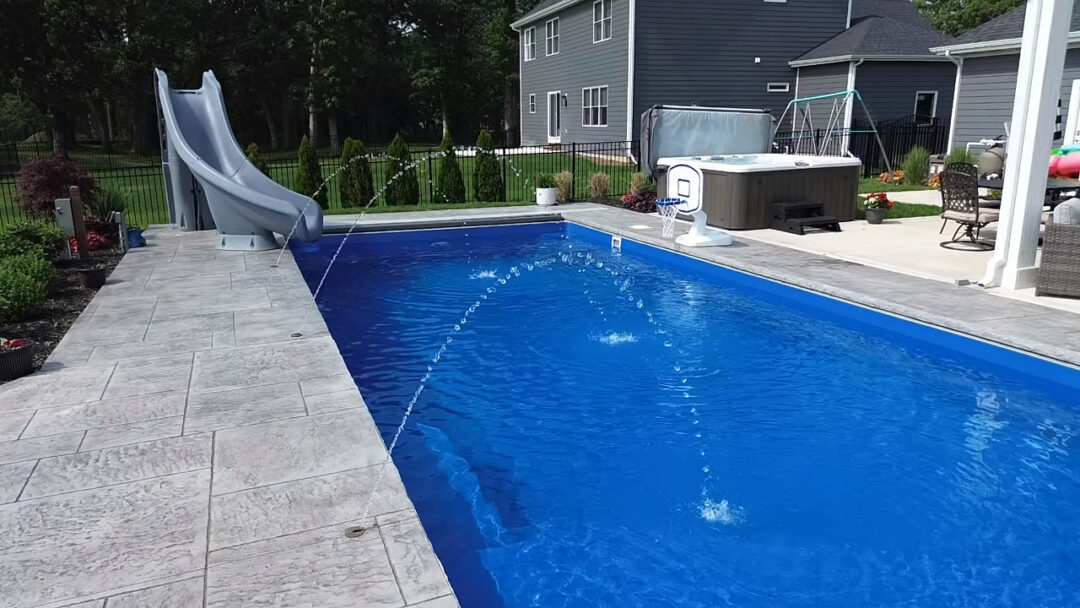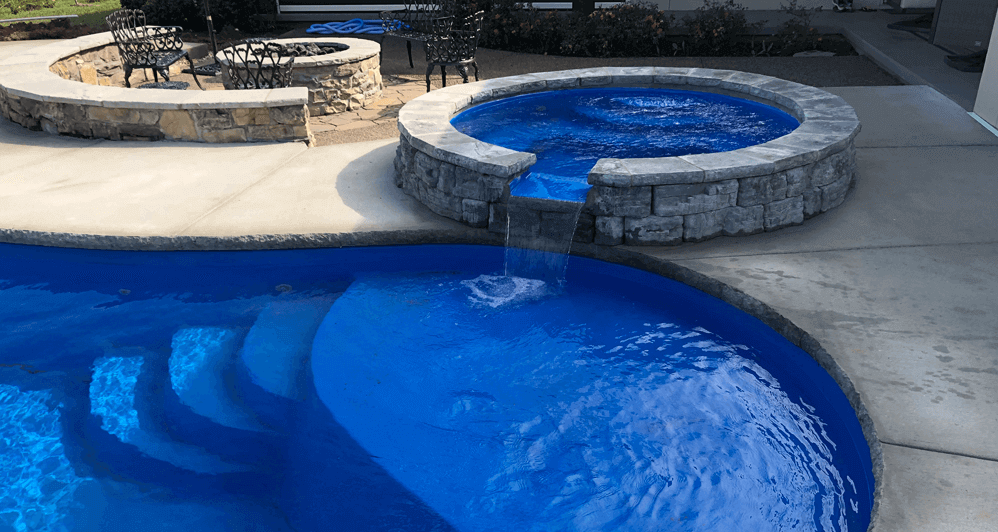Pros and Cons of Swimming Pool Automation

If you’re a longtime pool owner, you know just how important it is to monitor and maintain your pool equipment. Clearing out your skimmer basket, backwashing and cleaning your filter, testing your water chemistry, and setting your pump on a timer. You know, all that super fun stuff.
Owning a pool should be about enjoyment and luxury, not constant upkeep. If you’re sick of having to manually control your pool and its features, we understand completely. If this sounds like you, you may want to consider swimming pool automation.
With pool automation systems, you can control pumps, heaters, lights, and other features with the touch of a button. Like any smart technology, however, pool automation systems come with their share of pros and cons.
Royal Pools G2 Landscaping has installed hundreds of pools over the years throughout Northwest Indiana. Many of these pools have included automation systems. As installers, we recognize the value these systems have to so many pool owners and potential pool owners alike. We want you to know about both the good and the bad.
In this article, we’ll break down the pros and cons of swimming pool automation. The goal here is to help you determine whether investing in an automated pool is the right choice for your backyard retreat.
What Is Swimming Pool Automation?
At its core, swimming pool automation combines your pool’s mechanical and filtration systems into one smart control hub. The term automation essentially refers to controlling a swimming pool’s features from said control hub.
Forget manually turning valves and adjusting timers. With a pool automation system, you will use the control hub—or often, a mobile app—to manage pool functions.
A typical pool automation system can control:
- Pump
- Heater
- Filter
- Lighting
- Bubblers
- Deck Jets
- Waterfalls
- Spas
This integration makes pool maintenance more efficient and less labor-intensive, while also enhancing comfort and energy savings. A pool automation system will control most, if not all, of your pool equipment and features.
At RPG2, we carry the Hayward OmniHub Smart Control system. In addition to the items listed above, these nifty little machines can also control salt chlorination. If you decide to go with a saltwater pool, that is.
The OmniHub, like many automation systems, cannot entirely control and balance pool chemistry. You can change the output percentage on your salt-chlorine generator, but that is about it. There are automation systems on the market that have water chemistry control features, but they are generally recommended for large commercial pools.
What Is Swimming Pool Automation?
Pros of Swimming Pool Automation
1. Convenience and Control
Perhaps the biggest benefit of an automated pool is convenience. Do you want to heat your pool before heading home from work? Maybe you want to schedule your pump to run on a specific schedule, or switch on LED lights for an evening swim. With a pool automation system, you can do it all without stepping outside.
2. Better Water Quality
Some automation systems include chemical monitoring and can control salt-chlorination output. This helps maintain balanced pool water chemistry consistently, reducing the risk of algae growth, scaling, or skin irritation. A lot of residential automation systems cannot control water chemistry. For this reason, it is still recommended to test your water weekly or more, depending on usage.
3. Energy and Cost Savings
By programming pumps, heaters, and lights to run only when needed, pool automation can reduce energy consumption. Variable-speed pumps, when paired with smart controls, are especially efficient and can significantly lower utility bills.
4. Increased Lifespan of Equipment
Automation ensures pool equipment runs on optimal cycles, preventing overuse or misuse. This can extend the lifespan of pumps, heaters, and filters, saving you money on costly replacements.
5. Enhanced Luxury and Safety
Features like remote-controlled lighting and covers add a touch of luxury. Automated safety covers also provide peace of mind, especially for families with children or pets.
Cons of Swimming Pool Automation
1. High Initial Cost
One of the main drawbacks is cost. Installing a comprehensive pool automation system can range from $1,500 to $5,000 or more, depending on features. This can be a hard pill to swallow for some homeowners. The cost of an automation system will depend on several factors, including;
- Pool type (concrete, vinyl liner, or fiberglass)
- Pool size
- Complexity of design
- Brand/model of automation system
- Compatibility of the automation system with a smartphone app
2. Ongoing Pool Maintenance and Repairs
While automation reduces manual pool maintenance, the systems themselves require upkeep. Software updates, sensor calibrations, or electrical issues may arise, requiring professional service.
3. Technology Learning Curve
Some pool owners may find automation apps or panels confusing at first. For some homeowners, there can be a learning curve before they are comfortable using the system.
4. Dependence on Power and Internet
Automated pools rely on electricity and often wifi connection. Power outages or internet issues may temporarily limit your ability to control pool systems. A weak wifi connection will make it difficult to control your pool’s features the way you want to.
5. Not Always Necessary for Smaller Pools
For smaller, simpler pools, the investment in automation may not pay off. Manual pool care could remain the most cost-effective solution.
Is Swimming Pool Automation Worth It?

If you’re tech-savvy, want to streamline pool maintenance, or just love convenience, automation can transform your approach to taking care of your pool.
The features of your pool will dictate whether an automation system is a necessary addition. If you don’t have an assortment of equipment and extra features, an automation system may not be right for you, which is fine. Remember, extra features and an automation system only drive the overall cost up.
Pool automation systems are great for larger or more complex pools with spas, waterfalls, or multiple pumps. For small, low-maintenance pools, however, the upfront investment might be too high to justify purchasing a system you may not use so much.
Final Thoughts
Swimming pool automation systems provide convenience, energy savings, and cut down the amount of manual labor you put into the pool. But they also come with costs and technical considerations. Like any home upgrade, it comes down to your lifestyle and budget. Ultimately, a swimming pool is a luxury item that needs to be treated as such. An automation system can make this easy for you.
For homeowners who value their pool as a central gathering space and want the luxury of fingertip control, a pool automation system is a smart investment. For those comfortable with a hands-on approach to pool maintenance, the traditional manual route may still be best.
For more educational content on pools and landscaping, check out the articles below or dive into our learning hub at the top of our page. Have a great day!
Tell-Tale Signs That Your Pool Water Is Unbalanced
Which Type of Pool Filter Is the Best?
Written by Logan Edgemon
